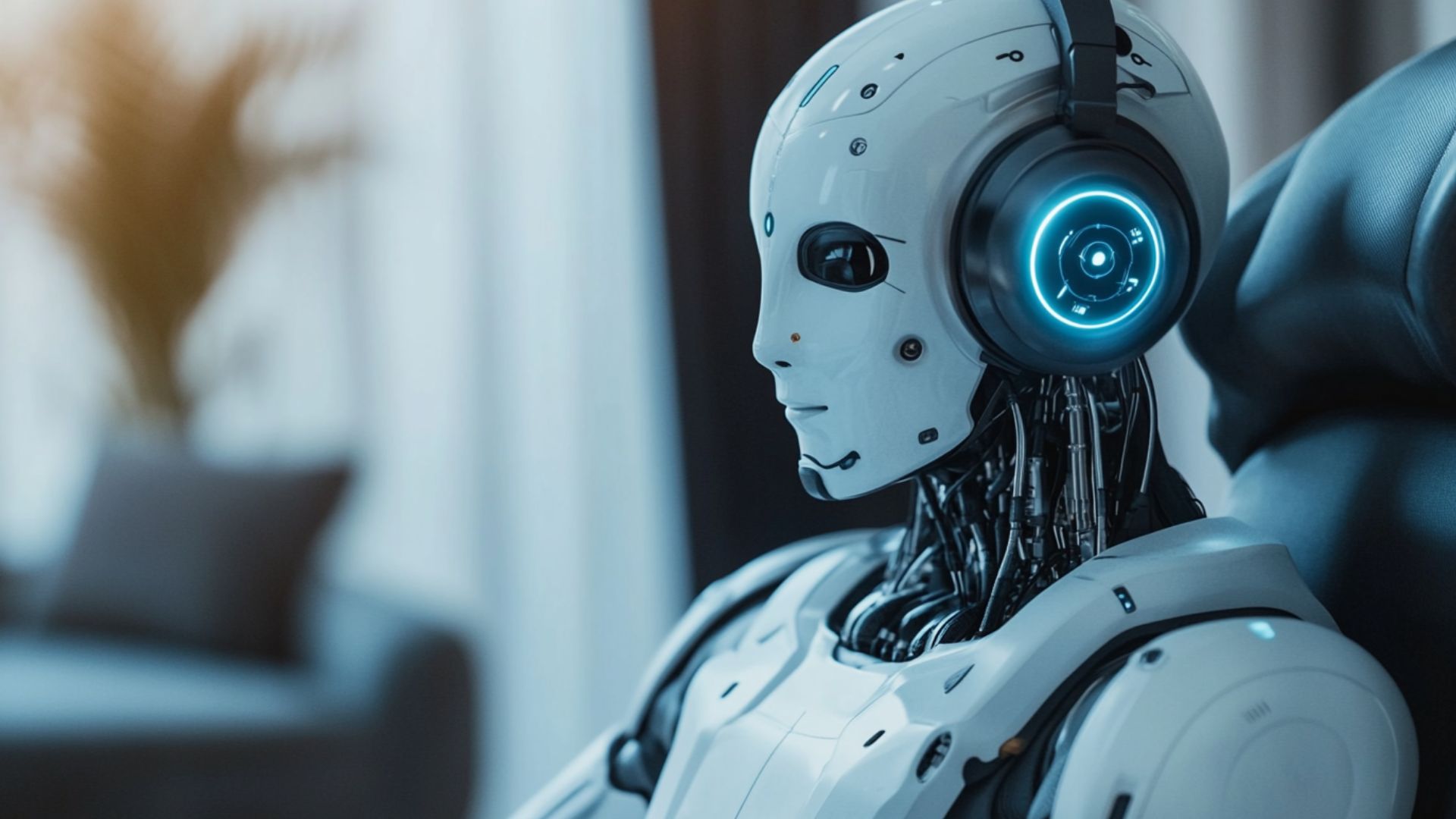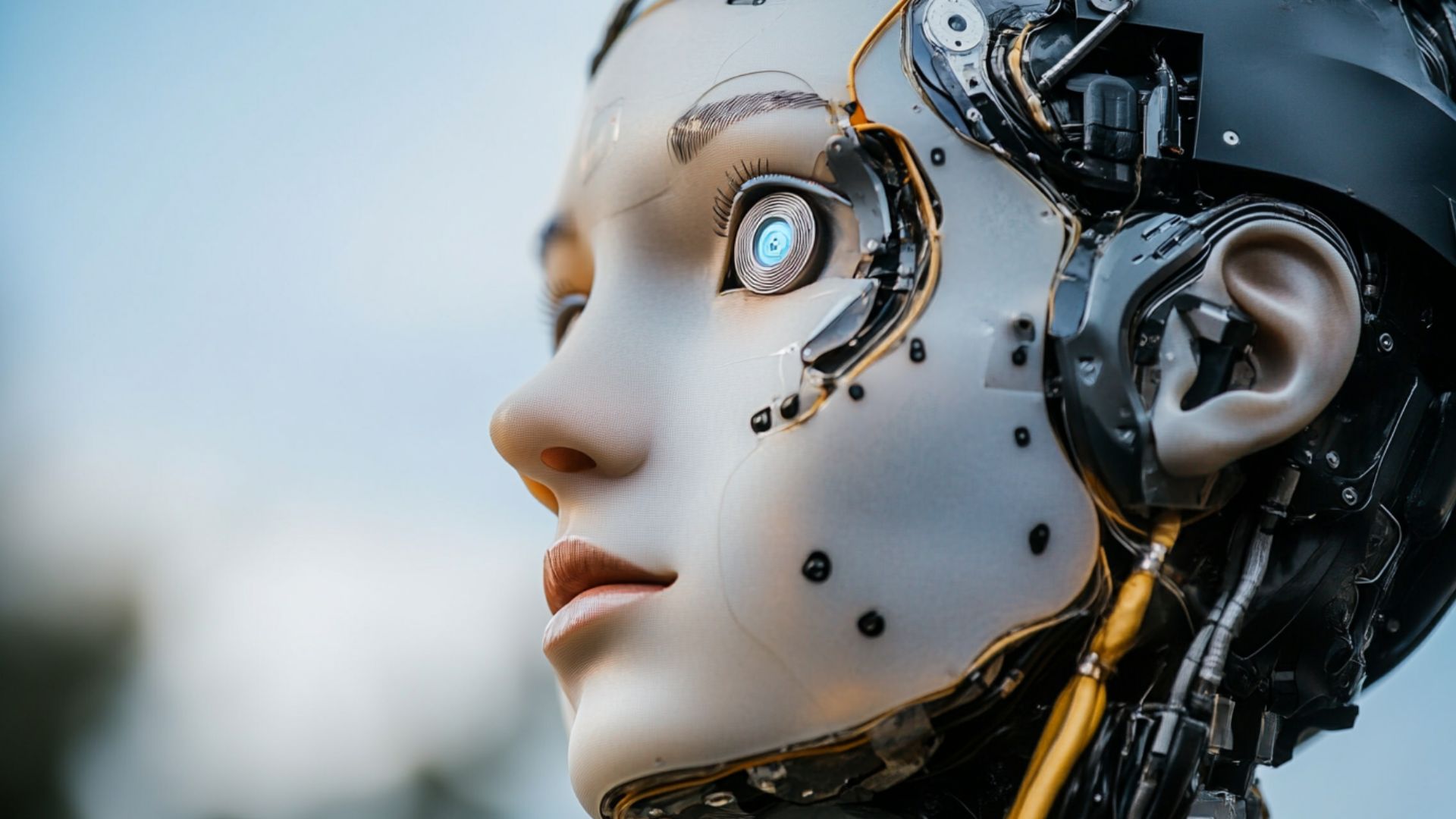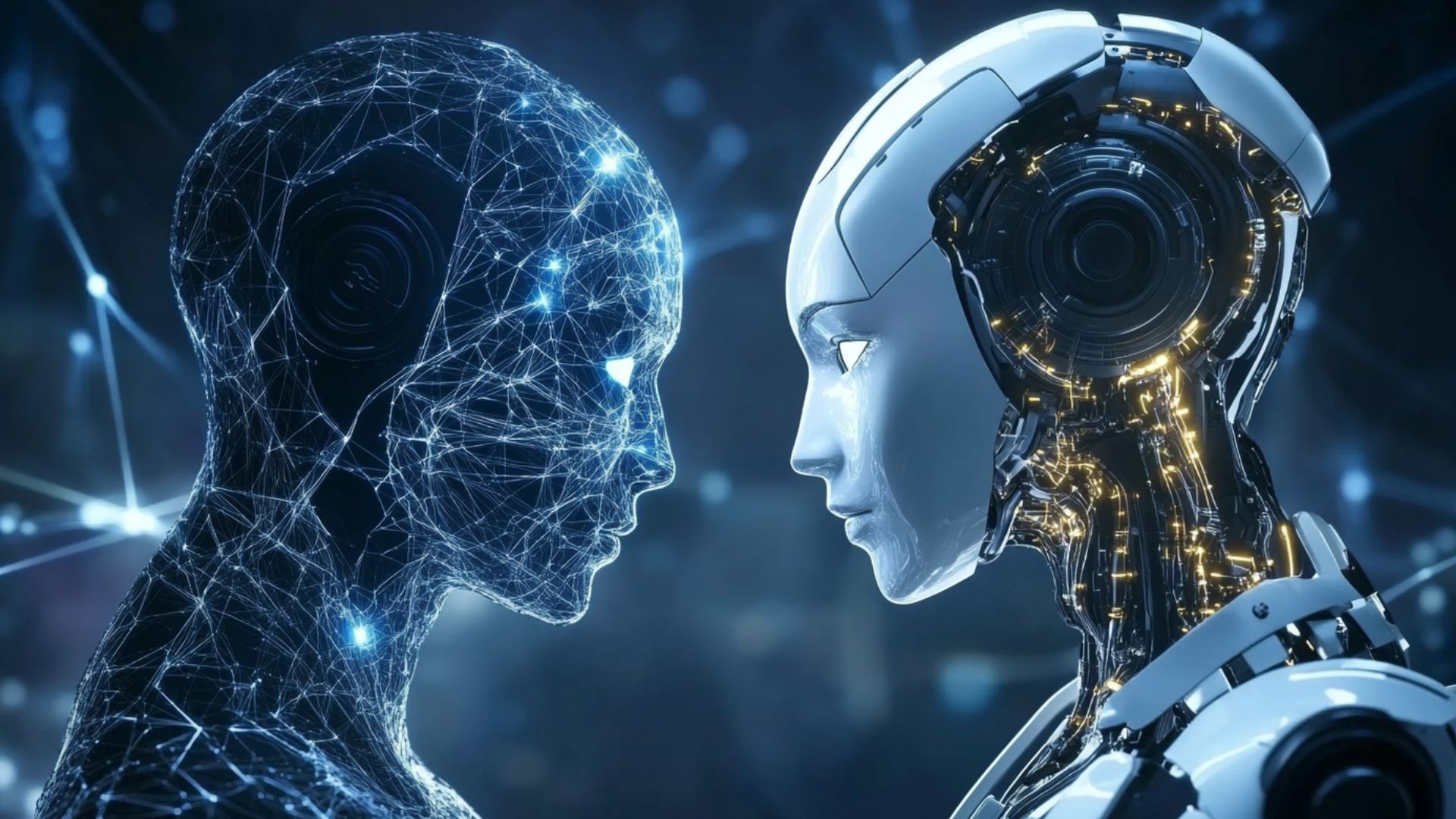Artificial Intelligence: Revolutionizing Everyday Life

AI has silently made its way into our daily routines. It has changed how we use technology and influenced our habits. It’s always active from the moment we rise in the morning until we go to bed at night. Often, we're not even aware of its presence.
AI in real life powers the gadgets that control our homes. It’s from thermostats to security systems. It analyzes our search history to provide personalized suggestions on everything from products to movies. At work, AI streamlines goals, robotizes work, and even helps with decisions. And on the road, self-driving cars can even change the transport system.
As AI evolves, its impact on society is expected to continue growing. It makes everyday tasks more efficient, personalized, and automated. AI boosts our quality of life in countless ways.
In our article, we will focus on how we use AI in our daily lives. So, join us. Read the text to the end and get all the valuable info for your experience. With this info, you can use your AI tools with maximum benefits.
AI in Communication and Social Media
AI has become an integral part of our online lives. It particularly in communication and social media platforms. As examples of AI in everyday life are apps like Facebook, Instagram, and X. They leverage AI programs to:
- Curate content.
- Adapt user experience.
- Boost communication.
One of the most vital ways AI operates in web platforms is through content suggestion. It analyzes our behavior, preferences, and interactions. Then, it can suggest relevant posts, articles, and videos. This unique approach boosts our engagement and keeps us coming back for more.
AI also plays a crucial role in boosting communication. Bots with AI can provide instant client support. They can answer questions and even engage in natural dialogues. NLP technology enables accurate translation. It makes it easier for people to communicate across different languages. Also, AI features in messaging apps used in everyday life. They are automatic replies and sentiment analysis. It boosts the experience.
AI-Powered Personal Assistants
Virtual assistants like Siri, Alexa, and Google Assistant have become indispensable gadgets in our lives. With AI, they can perform a wide range of tasks. It’s from setting alarms and reminders to controlling home gadgets.
AI assistants understand natural language and learn from our actions. AI can boost productivity and streamline tasks. They can schedule appointments, send emails, and even provide info on many topics. These real-life examples of artificial intelligence offer convenience and efficiency. It makes our lives easier and more connected.
AI in Social Media Algorithms
AI is the driving force behind the programs that power:
- Social media feeds.
- Personalized ads.
- Suggestions.
The AI in everyday life programs analyzes vast amounts of data. They can find patterns, preferences, and interests. It’s to deliver content that is most relevant to each of us.
Social media platforms use AI to tailor promotions to specific demographics. It ensures that we see products and services that align with our interests. Also, AI suggestion systems suggest friends, groups, and pages that we might enjoy. This approach fosters engagement and helps us discover new content and connections.
AI in Entertainment and Streaming Services

This is another AI example in real life. AI has revolutionized this industry. It's particularly popular on streaming services like Netflix, Spotify, and YouTube. They leverage AI suggestion engines. It's to suggest movies, music, and videos. Those align with our interests.
AI programs analyze viewing history, ratings, and interactions. Then, they can find patterns and trends to provide unique suggestions. This not only boosts our engagement. It also helps streaming services set our content libraries.
AI is also making significant strides in content creation. AI music and videos are becoming increasingly sophisticated. There, the programs are capable of making songs and visuals that are indistinguishable from human content. This opens up new possibilities for artistic expression and experimentation.
AI in Video Games and Virtual Worlds
AI in games is another example of AI we use everyday. AI has changed the gaming industry. It's from enhancing the behavior of NPCs to personalizing the gaming experience. In-game AI allows NPCs to exhibit more realistic behaviors. It makes games more immersive and engaging.
AI can be also used to create dynamic and adaptive environments. It analyzes our behavior and preferences. Then, it adjusts the difficulty level, pacing, and content of the game. It's to provide tailored experiences. This ensures that we remain challenged and entertained.
AI in Content Creation and Personalization
This is another way to use AI in real life. AI is playing a crucial role in making personalized content. It's from music playlists to article suggestions. By analyzing our data, AI programs can find our preferences and interests. It's to deliver content that is relevant and engaging.
In addition to personalizing, AI is also being used to help influencers. Tools with AI can robotize tasks. They are video editing, photo enhancement, and even writing texts. This allows artists to focus on more creative aspects of their work. And they can produce higher-quality content.
AI in Finance and Shopping
AI has changed the financial and shopping areas. This example of artificial intelligence in everyday life changed the way we manage our money. From fraud detection to personalized suggestions, AI is playing a crucial role in boosting:
- Efficiency.
- Security.
- Client satisfaction.
In the banking market, AI helps detect and prevent fraudulent transactions. By analyzing vast amounts of data, AI programs can find suspicious patterns and behaviors. It safeguards the client’s financial info. Also, AI bots and virtual assistants provide 24/7 client support. They answer queries and resolve issues efficiently.
Control is another way we use artificial intelligence in everyday life. AI is also making significant strides in investment management. AI analyzes market trends, historical data, and economic indicators. Programs can provide valuable insights for investors. This enables more informed decision-making and potentially higher returns.
In e-retail, AI adapts the shopping experiences. AI tracks client behavior, preferences, and purchase history. Then, programs can suggest products that are most likely to be of interest. This approach boosts client satisfaction and sales.
AI bots and virtual assistants that we use every day are also becoming increasingly common in e-retail. These AI solutions can provide instant client support, answer questions, and help with buying. They offer more convenient and efficient shopping experiences. AI is changing the way we interact with online retailers.
AI in Transportation and Navigation
AI has become an integral part of our lives. It’s particularly in the realm of transportation and navigation. Apps like Google Maps and Waze use sophisticated AI programs. It’s to analyze vast amounts of data. It includes real-time traffic conditions, road closures, and construction zones. By processing this info, these apps can provide us with the most efficient routes. It saves time and reduces frustration.
Where else do we see AI in everyday life? AI also plays a crucial role in ride-sharing platforms like Uber and Lyft. These solutions use AI to set driver-rider matching. It ensures that riders are connected with nearby drivers quickly and efficiently. Also, AI programs help find the most efficient routes for drivers. It cuts travel time and fuel consumption.
Perhaps the most groundbreaking use of AI in shuttle is the development of self-driving cars. These ones rely on a mix of sensors, cameras, and AI. It’s to route and make decisions on the road.
By analyzing real-time data from their surroundings using advanced sensors and artificial intelligence, self-driving cars can detect a variety of objects. It includes obstacles, pedestrians, and other cars. This enables them to make informed decisions and route safely through complex traffic.
It allows them to safely route complex traffic situations. It's still in the early stages of development. However, self-driving cars have the potential to change the shuttle. These AI technologies in daily life can reduce accidents, boost efficiency, and provide mobility. It’s especially helpful for those who are unable to drive.
AI in Autonomous Vehicles
Vehicles are another AI example in daily life. Automated vehicles represent a significant advancement in AI systems. These ones have a variety of sensors. It includes cameras, radar, and lidar. They all collect data about their surroundings. AI programs then process this data. It’s to create a 3D map of the environment. It finds potential hazards and obstacles.
To make decisions and route safely, robotized vehicles rely on deep learning techniques. These programs enable the vehicles to learn from vast amounts of data. It boosts their ability to recognize objects, predict traffic patterns, and make decisions. Significant progress has been made in robotized driving. However, there are still challenges to overcome. For example, ensuring the safety and reliability of these cars in various driving conditions. AI continues to advance. So, we can expect to see even more sophisticated and capable robotized vehicles in the future.
AI in Healthcare and Wellness
AI is rapidly changing the med industry in everyday life of everyone. It offers innovative solutions to boost patient outcomes and access to care. One of the most vital applications of AI in the med sector is in the development of diagnostic tools. AI solutions can analyze med images, such as X-rays and MRIs. It’s with greater accuracy than human experts. It aids in the early detection and evaluation of ailments.
Beyond diagnostics, AI is also being used to develop monitoring apps we use every day. Those can track a variety of metrics. It includes heart rate, blood pressure, and sleep patterns. These apps can provide suggestions and alerts. It helps people to take proactive steps to boost their states. AI helpers can also provide personalized advice on diet, exercise, and stress management. It empowers people to take control of their well-being.
For patients with chronic conditions, AI solutions help manage their care. It’s by tracking signs in daily life. They remind them to take meds and connect them with docs. Telemedicine relies heavily on AI solutions. It allows patients to consult with docs remotely. It reduces the need for in-person visits and boosts access to care. It’s especially in rural or underserved areas.
But how to find a reliable AI for med procedures? For this, consider us as your provider. Switch to us for a bot that truly understands your needs. Our modern systems deliver personalized and engaging conversations. Those drive client satisfaction and loyalty.
Why choose us?
- Tailored Solutions. We make bots that align perfectly with your goals.
- Advanced Features. Benefit from NLP, sentiment analysis, and ML for exceptional interactions.
- Scalability. Our bots can handle increasing client volumes. It’s without compromising work.
- 24/7 Support. Our team is always available to assist you and ensure your bot runs smoothly.
In summary, no matter how we use AI in everyday life. AI plays a vital role in changing the med sector anyway. It improves diagnostic accuracy, enables personalized care management, and expands access to healthcare. AI continues to advance. So, we can expect to see even more innovative apps that will benefit patients and docs alike. To test modern solutions, contact us today. Get a free consultation and discover how our bot solution can change your work.
AI in Smart Homes and IoT

Where else is AI used in everyday life? AI is rapidly changing the way we interact with our homes. It's thanks to the proliferation of smart solutions and the Internet of Things (IoT). AI thermostats can learn our preferences and adjust temperatures accordingly. It optimizes energy consumption and reduces utility bills. Smart lighting systems can detect our presence and adjust lighting levels. It's to suit our needs, boosting comfort and security.
AI also plays a crucial role in home security. Smart cameras have AI facial recognition systems. They can find intruders and alert homeowners. Also, AI programs can analyze video footage. It’s to find unusual activities, such as broken windows or open doors. AI digital assistants can also help manage our schedules. They can set reminders and provide unique suggestions.
Beyond these artificial intelligence in everyday life apps, AI is being also used to develop more sophisticated smart home features. For example, AI predictive maintenance systems can track the health of appliances. And they can predict when they need repairs. It prevents unexpected breakdowns and cuts maintenance costs. AI energy management systems can optimize energy consumption. It's by analyzing our usage patterns and finding opportunities for conservation.
AI systems continue to advance. So, we can expect to see even more innovative applications in smart homes and IoT. It ranges from self-cleaning solutions to predictive maintenance systems. AI has the potential to change our living spaces into truly smart and convenient environments.
Here are some additional examples of how we use AI every day in smart homes:
- Personalized entertainment. AI streaming services can suggest movies and TV shows. It's based on our viewing history and preferences.
- Enhanced home comfort. AI air conditioning systems can learn our preferred temperature and humidity levels. And they can adjust them accordingly.
- Boosted accessibility. AI voice helpers can help people with disabilities control their homes and access info.
The integration of AI in smart home devices and IoT is still in its early stages. However, the potential benefits are significant. By making our homes more smart and efficient, AI can boost our quality of life. And it will help us create more sustainable living spaces.
The Future of AI in Everyday Life
AI is rapidly changing our daily lives, and its influence is set to grow even more in the coming years. So, we’ve looked at more than five real-life examples of artificial intelligence. Now, let’s focus on the future. AI tech continues to advance. So, we can expect to see even more sophisticated and integrated apps in our homes, workplaces, and communities.
One of the most significant trends in AI is the development of more advanced personal helpers. They will become increasingly capable of understanding and responding to complex requests. It will make them indispensable solutions for:
- Managing our schedules.
- Controlling our homes.
- Accessing info.
AI solutions become more pervasive. So, as examples of AI in everyday life, we can expect to see a seamless integration of techs into our daily routines. It’s from smart homes to connected cars.
AI is also poised to change various aspects of our lives. It includes education, entertainment, and med areas. AI tutoring systems can provide personalized instruction to students. It can help them to learn at their own pace. AI creation solutions can make personalized suggestions for movies, music, and other forms of entertainment. In the med sector, AI develops more accurate diagnostic tools. It boosts drug discovery and enables remote monitoring.
However, as AI becomes more integrated in real lifes, it is essential to consider the ethical implications of its development and use. Concerns about privacy, job displacement, and the potential for AI to be misused are all valid. It’s crucial to ensure that AI is always developed in a responsible and ethical manner. There must be a focus on human well-being and societal benefit.
One area of particular concern is the potential for AI to exacerbate existing biases and inequalities. If we train AI solutions on biased data, they may perpetuate harmful stereotypes and discrimination. To address this issue, it's important to ensure that AI development is inclusive and diverse. There must be a focus on creating solutions that are fair and equitable.
Another challenge is the potential for AI used in everyday life to be used for malicious purposes. For example, spreading misinformation, hacking, or even developing autonomous weapons. To mitigate these risks, it is necessary to develop robust cybersecurity measures. And we must establish international regulations to govern the development and use of AI.
In spite of these obstacles, the pros of AI have the potential to be huge. It can assist in tackling global issues like climate change, poverty, and disease. It automates repetitive tasks. It enhances decision-making and fosters innovation.
In conclusion, the future of AI that we use every day is bright, with the potential to transform our world in countless ways. However, it's essential to approach this system with caution. We must ensure that it's developed and deployed in a responsible and ethical manner.


